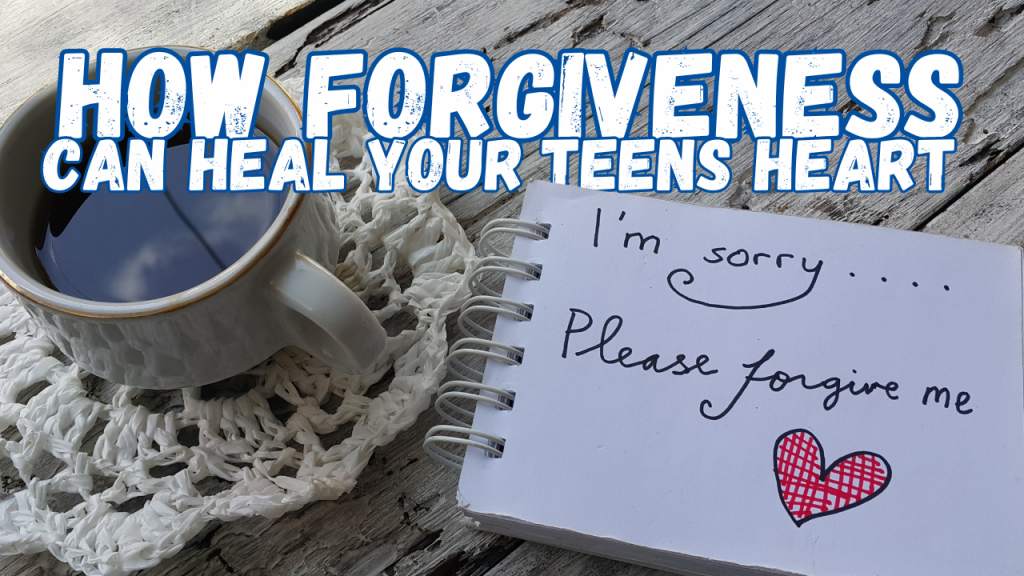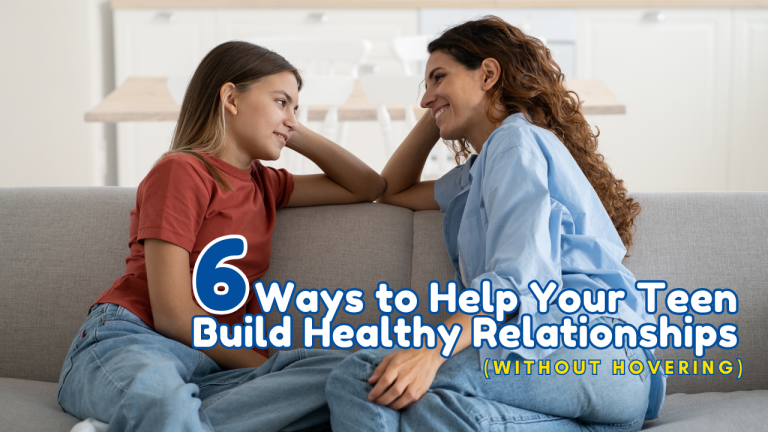There is a remedy for your teen’s wounded heart.
You may not know why your teen is angry or full of resentment, rejection, self-pity, and bitterness. They may not even know, as it is common for teens to bury the issues that have made them angry.
They may be angry with a parent for not being present in their lives, angry about their parents’ divorce, angry with peers at school who have rejected or bullied them, angry and hurt by past abuse, or a host of other hurts and traumas.
But at the root is a toxic force—one that steals joy and peace and causes depression, anxiety, and the anger you may have seen rising up in your teen.
That toxin is unforgiveness.
Unforgiveness is dangerous. It is classified in medical books as a disease, and according to Dr. Steven Standiford, chief of surgery at the Cancer Treatment Centers of America, refusing to forgive makes people sick and keeps them that way. A study by Johns Hopkins University found that unforgiveness lowers the immune system and increases the risk of depression, heart disease, and diabetes. For teens, it is a major cause of depression and chronic anxiety.
It’s serious business.
The remedy is the simple, but not always easy, answer: forgiveness.
At House of Hope, we invest heavily in the forgiveness process with the troubled teens who are part of our residential program. We do so because we know it is at the core of the healing process. We’ve seen it work miracles in teens time and again, and we believe it will do so in your teen’s life, too.
If your teen is hurting and displaying symptoms of anger, resentment or depression, helping them to walk through the steps to forgiveness is how you can help heal your teen’s heart.
What is Forgiveness?
There is a reason the Bible tells us the importance of forgiving—more than one reason, in fact: (Luke 6:37; Ephesians 4:31; Mark 11:24-25).
The dictionary definition of forgiveness is: “to pardon or excuse an offense without attaching a penalty; to cancel a debt.” To forgive is to release from judgment and give up the right to get even.
Many people, including teens, don’t want to forgive because they feel it is letting someone off the hook or they’re afraid of getting hurt again. Like most people, they don’t want to feel like they’re declaring what was done is okay.
That’s why it is so important to walk your teen through the forgiveness process and help them understand the truth about forgiving, as Lewis Smedes explained so well:
“To forgive is to set a prisoner free and to discover the prisoner was you.”
It’s not surprising that research shows forgiveness significantly improves mental health.
Once your teen realizes that forgiveness is for their benefit more than their offender’s, it will be much easier to walk through these steps.
How to Help Your Teen Forgive
You can help your teen work through these steps or share them with your teen and allow them to work through the journey on their own.
Step #1: Acknowledge the Offense
This may seem simple, but when you first approach your teen about forgiving, their initial response will likely be, ‘I don’t need to forgive anyone.’
That’s what most people think when they ask themselves the same question. Sometimes, it takes a moment of thought and meditation to allow yourself to reflect on past hurts. We don’t typically walk around with them at the forefront of our minds. Quite often, those wounds or traumas are buried deep for protection.
The first step in helping your teen forgive is encouraging them to acknowledge the offense. This is not something that can be forced but takes time and thought.
One way to do so is to provide your teen with a notebook or pad of paper and suggest they take some time alone to think of people they may need to forgive, even as far back as early childhood. They should write down whatever comes to mind.
Step #2: Make a Decision to Forgive
Forgiveness is not something that comes easily or naturally. We all know that is true!
That’s why forgiveness is a decision, not a feeling. We can forgive whether or not the offending party has apologized or recognized their wrongdoing.
That’s because forgiving someone isn’t a special favor to those who have wronged you. It doesn’t justify what they’ve done, and it doesn’t even indicate a restored relationship. In fact, forgiveness isn’t something that happens between you and another person—it is an actual transaction between you and God.
It is a quiet, personal transformation in your heart, and it gives God room to take care of justice on your behalf.
Understanding these truths will help teens make a decision to forgive those who have hurt them.
And more importantly—they don’t have to do it alone! Forgiveness is tough. That’s why asking God for help in this area can make a big difference.
Once your teen has made the decision to forgive, give them a heads up that thoughts of hurt and anger will likely rise up in them again, and they need to shut down those thoughts and remind themselves that it’s been forgiven.
Step #3: Act on Forgiveness
One thing that will help your teen seal their decision to forgive is to act on their forgiveness.
There is a common misconception that forgiveness always requires reconciliation. That is one of the things that makes the decision to forgive so difficult for some people. But that isn’t the case at all.
Sometimes, we have to forgive people who have passed away, people who were abusive, or people who are toxic in nature. Reconciliation is a separate act from forgiveness.
The Bible gives us a blueprint for responding to those who have hurt us, and each provides the pathway to walking in forgiveness, even at a distance. How do we do this?
1. Pray for them. (Matthew 5:44)
Many people find it difficult to pray for those who have hurt them, but it is an important part of the healing process. You may find it helpful to pray with your teen and lead the prayer for the person who hurt them as an example, then encourage them to pray for them on their own. Praying for those who have hurt us is an important and effective part of the forgiveness journey.
What do you pray? Pray that they will be blessed in this life, that God will help them where they need it most, and that they will receive His love and be a blessing to others. Maybe they have deep hurts in their hearts causing them to behave so badly—pray that God will heal those hurts and set them free.
2. Refuse to speak against them. (Matthew 5:44)
Once your teen has forgiven someone, a big part of their healing process and staying in forgiveness is refusing to speak against them.
Speaking against someone only stirs up the anger and hurt all over again. It’s a matter of the heart. So encourage your teen to refuse to speak against those who have hurt them once they have made the decision to forgive.
One way they can renew their minds in this area is to pray this simple prayer whenever they think of those who have wronged them: “God, You love ____, so I love _____. I forgive him, and I ask You to help me love him with the God kind of love.”
The Benefits of Forgiving
If your teen has been struggling with anger, depression, or anxiety, forgiveness is the first step toward healing. There are so many benefits of forgiveness, and this life skill will serve them well for their entire lives.
When you’re talking with your teen about forgiveness, be sure to share the benefits of forgiving:
- Forgiveness is freedom.
- Forgiveness gives people hope.
- Forgiveness keeps people healthy.
- Forgiveness keeps people happy.
At House of Hope, we have seen one teen and family after another healed once they took steps to forgive those who had hurt them.
We hope you and your teen will find the same hope and healing as you work through the powerful process of forgiveness to heal your teen’s heart.








